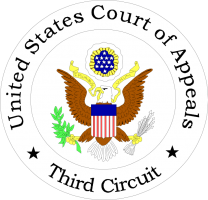 The U.S. Court of Appeals for the Third Circuit recently held that a false statement in a communication from a debt collector must be “material” to be actionable under the FDCPA. In so ruling, the Court found that materiality was a part of the “least sophisticated debtor” analysis.
The U.S. Court of Appeals for the Third Circuit recently held that a false statement in a communication from a debt collector must be “material” to be actionable under the FDCPA. In so ruling, the Court found that materiality was a part of the “least sophisticated debtor” analysis.
A copy of the opinion is available at: Link to Opinion.
In that case, a debt collector had purchased credit-card debt from the original lender. That debt collector then hired a law firm to help collect the debt.
The law firm then filed suit to collect the debt. In that underlying case, the law firm obtained a default judgment against the borrower. The law firm then attempted to collect on that judgment by serving a subpoena and written questions on the borrower.
For that subpoena, the clerk of the court’s name should have been listed on it. However, the law firm listed a different name, incorrectly. The borrower claimed this was “fraudulent” but still responded to the subpoena.
The borrower then sued the law firm and the debt collector for allegedly violating the FDCPA by including the incorrect name on the subpoena. The trial court granted summary judgment to the law firm and the debt collector, finding the misstatement in the subpoena was not material.
The Appellate Court began by reciting the familiar elements of an FDCPA claim: (1) the plaintiff is a consumer, (2) the defendant is a debt collector, (3) the defendant was attempting to collect a “debt” under the FDCPA, and (4) the defendant violated the FDCPA when attempting to collect the debt.
The Court noted that only the fourth prong was disputed. The borrower claimed the subpoena violated the FDCPA for two reasons. First, it allegedly violated 1692e(9) by falsely representing that it was a document approved by a court. Second, and more generally, the borrower alleged the subpoena violated 1692e(10) because it was false and deceptive.
The Court recognized that using the incorrect name on the subpoena was technically “false.” However, the Court noted that other circuit courts have required a false statement to be material to be actionable under the FDCPA. In that vein, no circuit court had disagreed with those decisions.
Materiality is ‘Corollary’ of ‘Least Sophisticated Debtor’ Standard
The borrower countered by pointing out that the word “material” is not included in this section of the FDCPA. The Court rejected this argument, noting that materiality was a “corollary” of the “least sophisticated debtor” standard by which communications are judged.
The Court began the discussion of this standard by noting that it is objective. That is, the question is not whether the borrower was misled, but whether the “least sophisticated debtor” would be. The Court observed that appellate courts “almost universally employ[]” this standard, even though it is not in the text of the FDCPA.
The Court noted that it uses the least sophisticated debtor standard to evaluate claims under 1692e. Using this standard, the Court pointed to decisions by other circuits holding that technically false information does not violate the FDCPA if it is not misleading. To that end, the Court found that immaterial information does not affect the goal of the FDCPA—providing reliable information that will aid in the decision-making process. Because immaterial information plays no role in that process.
Based on this, the Court interpreted the FDCPA to include a materiality requirement. In doing so, the Court viewed it merely “as a different way of expressing the least sophisticated debtor standard . . . .”
The Court summarized its analysis by saying “A debtor simply cannot be confused, deceived, or misled by an incorrect statement unless it is material.”
The Court stressed that this materiality analysis must still be performed from the viewpoint of the least sophisticated debtor. It once again emphasized that this was not a particularly high bar.
Turning to the facts at issue, the Court held that it was “obvious” that including the incorrect name was not material. The Court found there was no way this would affect the least sophisticated debtor’s decision-making.
The Court also rejected the argument that listing the incorrect name made the subpoena “invalid” on state-law grounds.
The borrower next argued that the law firm should be held to a more exacting standard under a line of case law finding attorneys are subject to more scrutiny under the FDCPA. The Court disagreed, concluding these cases were not applicable because the attorney was not using her status as an attorney to coerce a debtor.
Lastly, the borrower claimed that summary judgment should not have been granted because materiality is a question of fact. The Court found this argument unpersuasive. It held that, even if materiality is a question of fact (an issue the Court did not decide), the record was devoid of any information suggesting the statement was factually material.
As the statement at issue was not material, the Court affirmed the grant of summary judgment to the debt collector and its attorneys.

